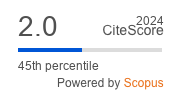Using experimentation to boost university–industry collaboration
DOI:
https://doi.org/10.23726/cij.2024.1531Keywords:
Science commercialization, university–industry collaboration, randomized controlled trials, experimentationAbstract
The ATTRACT NEXT project examined the potential of experimentation – particularly the use of randomized controlled trials (RCTs) – to enhance university–industry collaboration, a policy field in which such methods have been underutilized to date. This project has led to the development of a Handbook on Experiments in University–Industry Collaboration, which identifies critical challenges in university–industry collaborations and proposes testable experimental ideas for interventions. A learning and support programme, the University–Industry Impact Accelerator, then facilitated the design and piloting of three experimental interventions addressing motivation, capacity-building, and relationship development between researchers and businesses. The results indicate that structured experimentation can yield actionable insights, improve engagement strategies, and optimize programme effectiveness. The NEXT initiative has demonstrated the feasibility and value of embedding experimentation within university–industry collaborations, aiming to foster more robust, evidence-based policy-making and programme implementation in the policy space.
References
Bakhshi, H., Edwards, J. S., Roper, S., Scully, J., Shaw, D., Morley, L., & Rathbone, N. (2015). Assessing an experimental approach to industrial policy evaluation: Applying RCT+ to the case of Creative Credits. Research Policy, 44(8), 1462–1472. https://doi.org/10.1016/j.respol.2015.04.004
Balabay, O., Geijtenbeek, L., Jansen, J., Lemmers, O., & Seip, M. (2019). Het langetermijneffect van innovatievouchers voor mkb-bedrijven op bedrijfsresultaten. https://www.bedrijvenbeleidinbeeld.nl/downloads/publicaties/2019/10/13/gecombineerd-gebruik-financieringsinstrumenten-kopie
Bendiscioli, S., Firpo, T., Bravo-Biosca, A., Czibor, E., Garfinkel, M., Stafford, T., Wilsdon, J., Woods, H. B., & Balling, G. V. (2023). The experimental research funder’s handbook (2nd edition). Research on Research Institute. https://doi.org/10.6084/m9.figshare.19459328.v4
Boudreau, K. J., Brady, T., Ganguli, I., Gaule, P., Guinan, E., Hollenberg, A., & Lakhani, K. R. (2017). A field experiment on search costs and the formation of scientific collaborations. The Review of Economics and Statistics, 99(4), 565–576. https://doi.org/10.1162/REST_a_00676
Bravo-Biosca, A. (2020). Experimental innovation policy. Innovation Policy and the Economy, 20, 191–232. https://doi.org/10.1086/705644
Cornet, M., Vroomen, B., & van der Steeg, M. (2006). Do innovation vouchers help SMEs to cross the bridge towards science? https://www.cpb.nl/en/publication/do-innovation-vouchers-help-smes-cross-bridge-towards-science
Cuello, H. (2019, December 11). European innovation agencies are running randomised experiments to improve their support schemes. Innovation Growth Lab. https://www.innovationgrowthlab.org/blog/european-innovation-agencies-are-running-randomised-experiments-improve-their-support-schemesFlorio, M., & Castelnovo, P. (2023). Quasi-experiments to estimate the economic impact of research infrastructures. CERN IdeaSquare Journal of Experimental Innovation, 7(3), 5–7. https://doi.org/10.23726/CIJ.2023.1492
Florio, M., & Castelnovo, P. (2023). Quasi-experiments to estimate the economic impact of research infrastructures. CERN IdeaSquare Journal of Experimental Innovation, 7(3), 5–7. https://doi.org/10.23726/CIJ.2023.1492
Hasan, S., & Koning, R. (2019). Priorities and the limits of peer effects on startup team performance. Strategic Management Journal, 40(9), 1394–1416. https://doi.org/10.1002/smj.3032
Kleine, M., Heite, J., & Rosendahl Huber, L. (2022). Subsidized R&D collaboration: The causal effect of innovation vouchers on innovation outcomes. Research Policy, 51(6), 104515. https://doi.org/10.1016/j.respol.2022.104515
Phipps, J. (2019, January 28). Why you should know about the Business Basics Programme. Innovation Growth Lab. https://www.innovationgrowthlab.org/blog/why-you-should-know-about-business-basics-programme
Research on Research Institute. (2024, January 26). RoRI announces new partners and a new project. https://researchonresearch.org/rori-announces-new-partners-and-a-new-project-and-the-core-team-is-expanding/
Sormani, E., Baaken, T., & Van Der Sijde, P. (2022). What sparks academic engagement with society? A comparison of incentives appealing to motives. Industry and Higher Education, 36(1), 19–36. https://doi.org/10.1177/0950422221994062
Downloads
Published
How to Cite
Issue
Section
Categories
License
Copyright (c) 2024 Sara García Arteagoitia, Rob Fuller

This work is licensed under a Creative Commons Attribution 4.0 International License.
Authors who publish with this journal agree to the following terms:
- Authors retain copyright and grant the journal right of first publication with the work simultaneously licensed under a Creative Commons Attribution License that allows others to share the work with an acknowledgement of the work's authorship and initial publication in this journal.
- Authors are able to enter into separate, additional contractual arrangements for the non-exclusive distribution of the journal's published version of the work (e.g., post it to an institutional repository or publish it in a book), with an acknowledgement of its initial publication in this journal.
- Authors are permitted and encouraged to post their work online (e.g., in institutional repositories or on their website) prior to and during the submission process, as it can lead to productive exchanges, as well as earlier and greater citation of published work (See The Effect of Open Access).


